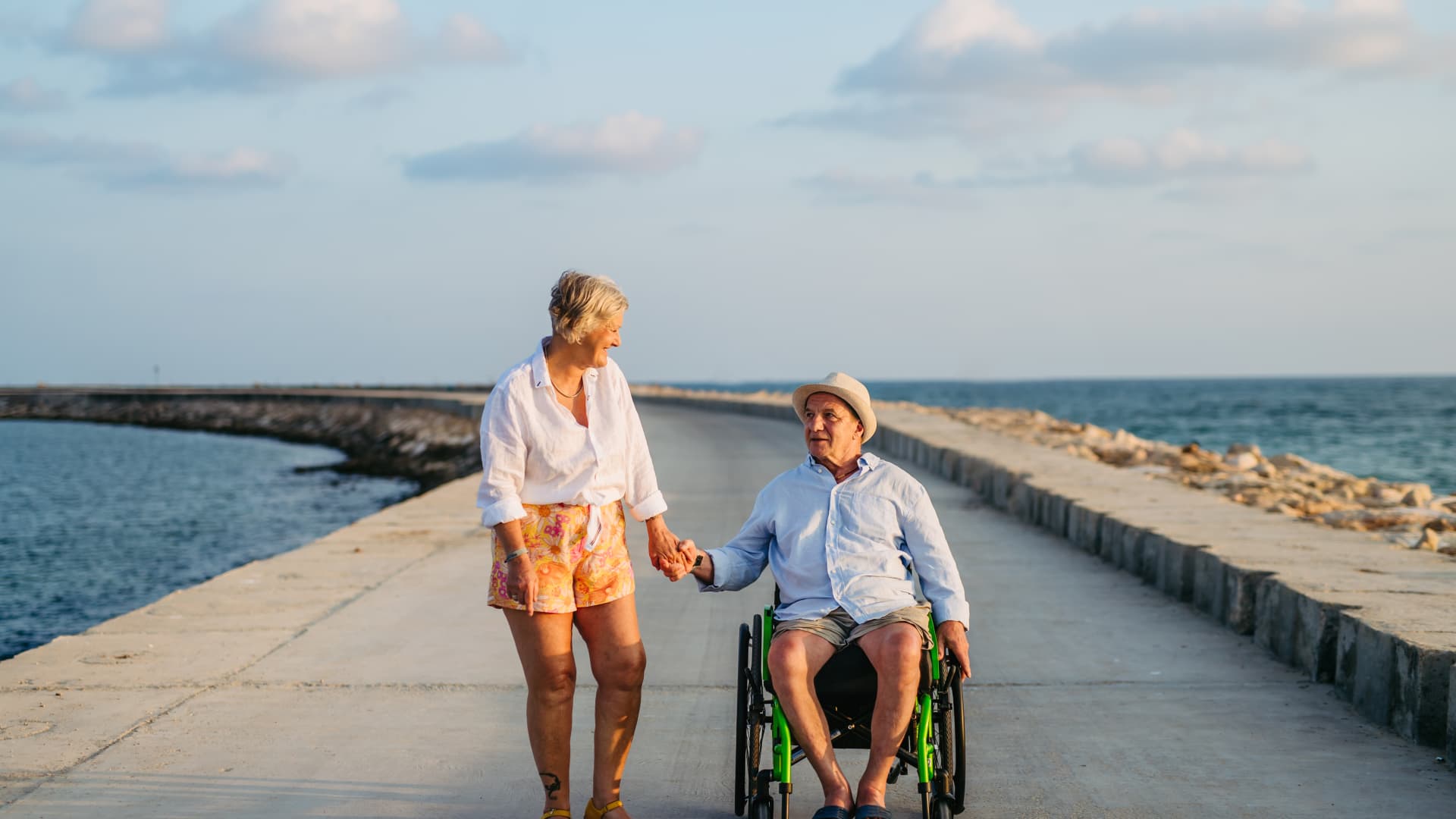Halfpoint Images | Moment | Getty Images
The Americans with Disabilities Act was signed into law 33 years ago to protect people with disabilities from discrimination.
But disabled people still face major hurdles when it comes to building wealth.
To help make it easier for disabled individuals with lower incomes to save, Sen. Bob Casey, D-Pa., who serves as chairman of the Senate Special Committee on Aging, is introducing a new proposal, called the ABLE MATCH Act. The legislation would create a federal dollar-for-dollar match for new and existing ABLE accounts for individuals who earn $28,000 or less per year.
More from Personal Finance:
Long Covid has led to financial hardship for patients
Less than 5% of housing is accessible to older, disabled Americans
Hybrid work is new normal, as companies rethink work habits
ABLE accounts, which were established with federal legislation in 2014, allow qualifying individuals to set money aside for disability-related expenses without losing eligibility for federal programs such as Medicaid or Supplemental Security Income. The tax-advantaged accounts allow for tax-free withdrawals for qualifying expenses, while investment gains may grow on a tax-deferred basis.
The ABLE program has been a “lifeline for thousands of people with disabilities across the nation,” Casey said in a statement.
“However, there are still too many people whose lives would be made easier by the program, but don’t have sufficient funds to open an account,” Casey added.
Proposal would add a 100% federal match
The ABLE MATCH Act would create a federal dollar-for-dollar match for individuals who make $28,000 or less, which would taper off for each dollar earned over that threshold.
That threshold would be adjusted for inflation and for heads of household and married couples.
The bill’s goal is to help boost enrollment in ABLE accounts for people with lower incomes who have disabilities.
The introduction of the proposal is a “really exciting development,” said Thomas Foley, executive director at the National Disability Institute.
There are still too many people whose lives would be made easier by the program, but don’t have sufficient funds to open an account.
Sen. Bob Casey
Democratic senator from Pennsylvania
“This is providing an incentive to a group of people who haven’t been incentivized, and in fact have been dis-incentivized to save for decades,” Foley said.
People with disabilities are twice as likely to live in poverty compared with people without disabilities, Foley said.
The National Disability Institute’s research has found that people with disabilities need to spend about $28,000 more per year to live lifestyles equivalent to those of people without disabilities, he said.
Those extra costs come from needs such as accessible transportation, living closer to work, or the maintenance of a service dog, for example.
Disabled individuals, particularly those who are younger, may find it difficult to save in an ABLE account due to a lack of disposable income, Foley said.
New legislation passed last year raised the age limit from 26 to 46 for the onset of a disability in order to participate in an ABLE account starting in 2026.
With that change, as many as 14 million people may be eligible to participate in ABLE accounts, Foley said.

